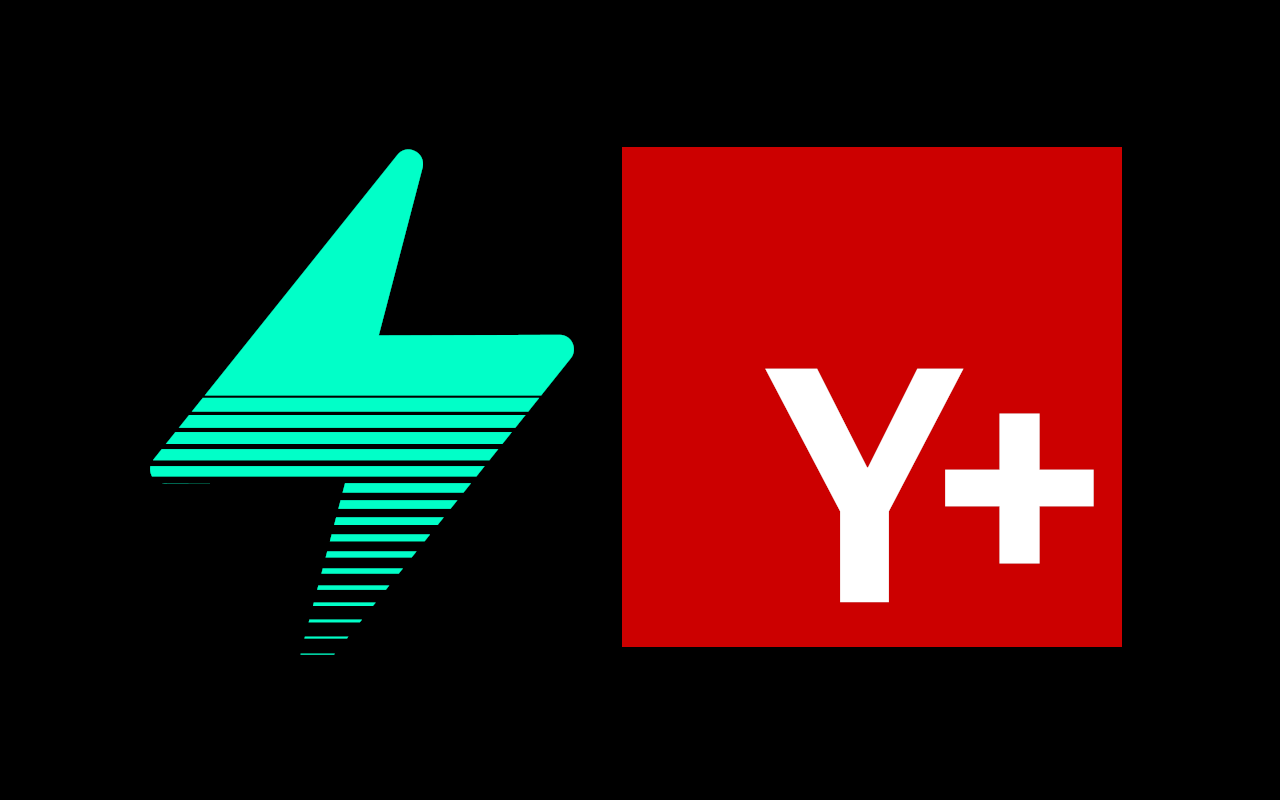Today, Fuel Labs introduces Yul+, which adds various QoL features to Yul, a low-level intermediate language for the Ethereum Virtual Machine.
今天,Fuel实验室推出了 Yul+,它为以太坊虚拟机的低级中继语言 Yul 添加了各种 QoL 功能。

Fuel Labs Inc. introduces Yul+ a new low-level language for Ethereum.
Fuel实验室为以太坊引入了一种新的低级语言 Yul+。
Yul is an incredible little language written by the Solidity Developers as a compilation target for further optimizations. It features a simplistic and functional low-level grammar. It allows the developer to get much closer to raw EVM than Solidity, and with that comes the promise to drastically improved gas usage.
Yul 是 Solidity 开发人员编写的一种难以置信的小语言,它也作为进一步优化的编译目标。它具有简单而实用的低级语法。与 Solidity 相比,它允许开发人员更接近原始 EVM,并承诺大幅改进 gas 使用。
Fuel Labs has implemented itsinitial open-beta optimistic rollup contract largely with Yul, but we noticed that with the addition of even a tiny number of basic language additions, our code could become more legible and efficient.
Fuel实验室 已在很大程度上,在 Yul 实施了其最初公开测试版的乐观汇总合约,但我们注意到,即使添加少量的基本语言,我们的代码也可能会变得更多清晰有效。
Yul+ can be looked at as an experimental upgrade to Yul, and Yul might aim to integrate some of its features natively at a later time.
Yul+ 可以看作是对 Yul 的实验性升级,以后Yul 可能会在本地集成它的一些功能。
一些 Yul 基础知识 (Some Yul Basics)
A basic Yul contract with a constructor and runtime
带有构造函数和运行时的基本 Yul 合约
object "EmptyContract" {
code {
// Your constructor code
datacopy(0, dataoffset("Runtime"), datasize("Runtime"))
return(0, datasize("Runtime"))
}
object "Runtime" {
code {
// Your runtime code
}
}
}
Handling calldata 处理调用数据
// copy calldata to memory
// this copies 36 bytes of transaction calldata to memory position 0
calldatacopy(0, 0, 36)
Managing memory 管理内存
// store and read memory
// store 0xaa at memory position 100
mstore(100, 0xaa)
// load 32 byte chunk from memory position 100 and assign to someVar
let someVar := mload(100)
Hashing 哈希化
// hash memory position 0 to 0+32, assign result to someHash
let someHash := keccak256(0, 32)
State storage 状态存储
// store value 0xaa in state storage slot 3
sstore(3, 0xaa)
// get value from state storage 3 and assign to someVar
let someVar := sload(3)
Functions, conditions, loops, and switches
函数,条件,循环和开关语句
// Functions and conditions
function someMethod(someVar, someOther) -> someResult {
if eq(someVar, someOther) {
someResult := 0x45
}
}
// Loops
for { let i := 0 } lt(i, 100) { i := add(i, 1) } {
// some loop code
}
// Switches
switch someVar
case 0 {
// when someVar == 0
}
case 1 {
// when someVar == 1
}
default {
// default
}
Yul+功能 (Yul+ Features)
-
All existing Yul language features
所有现有的 Yul 语言功能 -
Enums (enum)
枚举(enum) -
Constants (const)
常量 (const) -
Ethereum standard ABI signature generation (*sig”function …”)
以太坊标准 ABI 签名生成(sig”function ...”) -
Booleans (true, false)
布尔值 (true, false) -
Safe math by default (i.e. over/under flow protection for addition, subtraction, multiplication)
默认情况下安全数学(即加法、减法、乘法的溢出/下溢保护) -
Injected methods (mslice and require)
注入方法(mslice 和 require) -
Memory structures (mstruct)
内存结构(mstruct)
用法 (Usage)
Enums, constants, and Booleans
枚举,常量和布尔值
enum Colors (
Red, // 0
Blue, // 1
Green // 2
)
// Constant someConst will equal 1
const someColor := Colors.Blue
// Constant someBool will equal 0x1
const someBool := true
Ethereum standard ABI signature generation for method sigs and topics:
以太坊标准 ABI 签名生成(方法标志和主题)
// someVar will equal 4 byte method signature 0x6057361d
let someVar := sig”function store(uint256 val)”
// someTopic will equal 32 byte topic hash 0x69404ebde4a368ae324ed310becfefc3edfe9e5ebca74464e37ffffd8309a3c1
let someTopic := topic”event Store(uint256 val)”
All maths are now safe by default, which can be disabled in the compiler if desired.
现在默认情况下所有数学都是安全的,如果需要,可以在编译器中禁用它。
let someVar := add(3, sub(4, 2))
// will compile to this, with safeAdd, safeSub methods injected
let someVar := safeAdd(3, safeSub(4, 2))
We add for convenience a memory slice mslice and require if true
为方便起见,我们添加了一个内存切片,如果 mslice 和 require 为真
mstore(300, 0xaabbccdd) // note, mstore left pads zeros by 28 bytes
let someVal := mslice(328, 3) // will return 0xaabbcc
require(gt(someVal, 0)) // someVal > 0 or revert(0, 0) nicely
Lastly, we enable memory structures. These are used to describe already-existing structures in memory, such as calldata, hash data, or any data with structure written to memory.
最后,我们启用内存结构。它用于描述内存中已经存在的结构,例如调用数据、哈希数据或任何具有写入内存的结构的数据。
It offers a wide range of positioning, offset, hashing, indexing, and organizational features to better handle memory with neat efficient pre-made functions injected on-demand. We still keep to using a functional notation of injected functions, which doesn’t break existing Yul grammer style.
它提供了广泛的定位、偏移、散列/哈希化、索引和组织功能,进而通过按需注入的简洁高效的预制功能来更好地处理内存。我们仍然继续使用注入函数的函数表示法,这不会破坏现有的 Yul 语法风格。
// Let’s assume we assign some calldata to memory position 0
// this describes an abstract memory construction:
mstruct SomeCalldata(
signature: 4,
value: 32,
)
let methodSig := SomeCalldata.signature(0) // slices out sig
let someVal := SomeCalldata.value(0) // slices out value
// we also get some nice indexing and offset features
SomeCalldata.value.position(0) // equals 4 (i.e. 0 + 4)
// Index ordering values as well
SomeCalldata.signature.index() // equals 0
SomeCalldata.value.index() // equal 1
// Keccak hashing
SomeCalldata.value.keccak256(0) // equals 32 byte hash of value
// Calculate entire size of calldata structure
SomeCalldata.size(0) // equals 36 (i.e. 4 + 32)
案例:Yul+ SimpleStore合约 (Example: Yul+ SimpleStore Contract)
object “SimpleStore” {
code {
datacopy(0, dataoffset(“Runtime”), datasize(“Runtime”))
return(0, datasize(“Runtime”))
}
object “Runtime” {
code {
calldatacopy(0, 0, 36) // copy calldata into memory
mstruct Calldata( // mstruct describes calldata
sig: 4,
val: 32
)
switch Calldata.sig(0) // get signature at positive zero
case sig”function store(uint256 val)” { // store method
sstore(0, Calldata.val(0))
}
case sig”function get() returns (uint256)” { // get method
mstore(100, sload(0))
return (100, 32)
}
}
}
}
在您的浏览器上尝试它!(Try it Now in Your Browser!)
Yul+ - Low-Level Ethereum Devepment
Fuel is a trustless scalable Ethereum side-chain implimentation which can quadratically scale to 2 million TPS.
Fuel 是一种去信任的可扩展以太坊侧链实现,可以扩展至 200 万 TPS。
总结 (Wrapping Up)
In conclusion, the Fuel Labs team hopes to expand the possibilities for the Ethereum Virtual Machine by creating more low-level alternatives which we use everyday to build high-performance optimistic rollup scalability for the ecosystem.
总之,Fuel Labs 团队希望通过创建更多低级替代方案来扩展以太坊虚拟机的可能性,我们每天都使用这些替代方案,来为生态系统构建高性能的乐观汇总扩展。
In the meantime, for more info and to keep up to date with our work:
同时,想了解更多信息并及时了解我们的工作,欢迎访问:
Website: https://fuel.sh
Twitter: https://twitter.com/FuelLabs_
GitHub: https://github.com/FuelLabs/yulp

